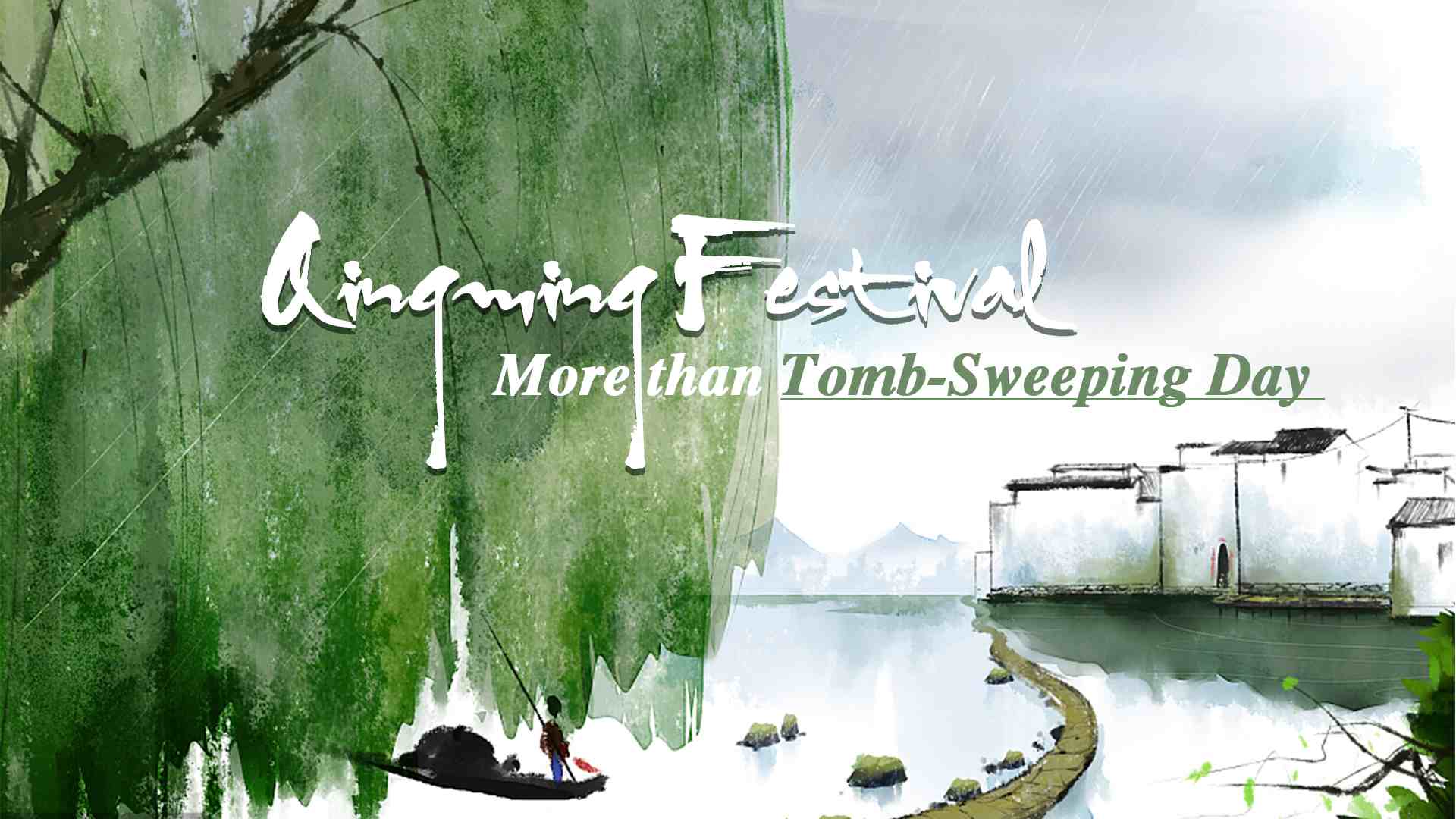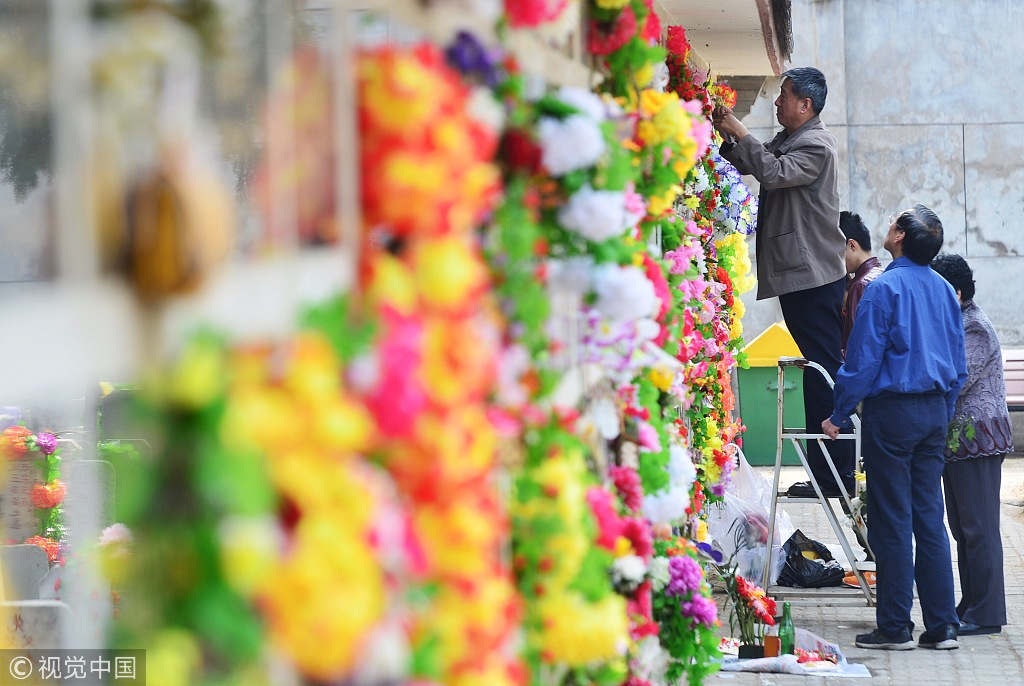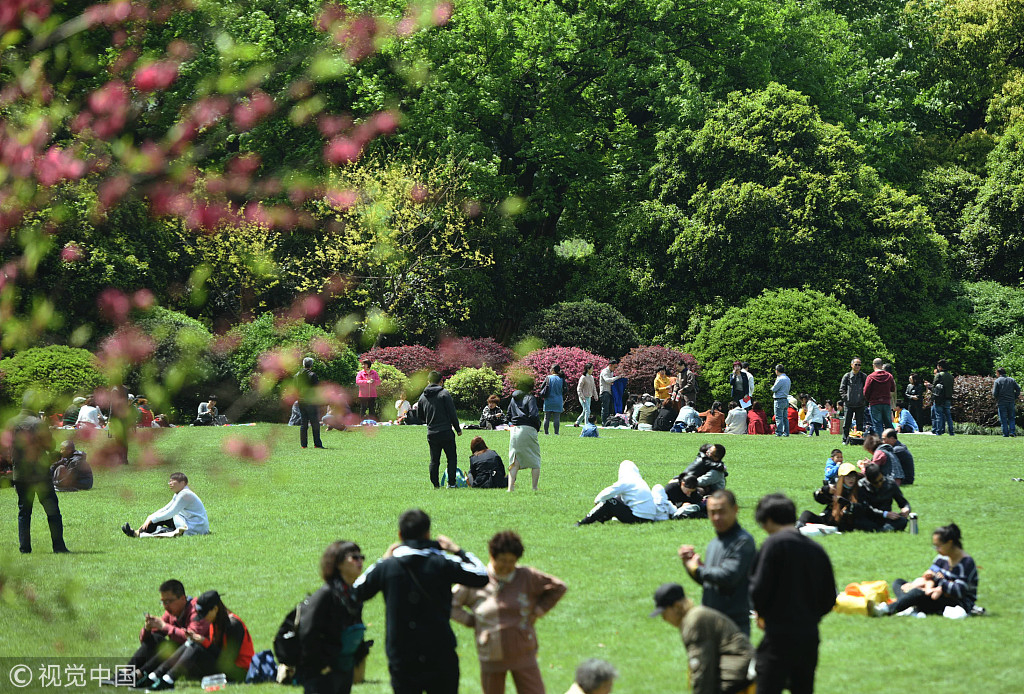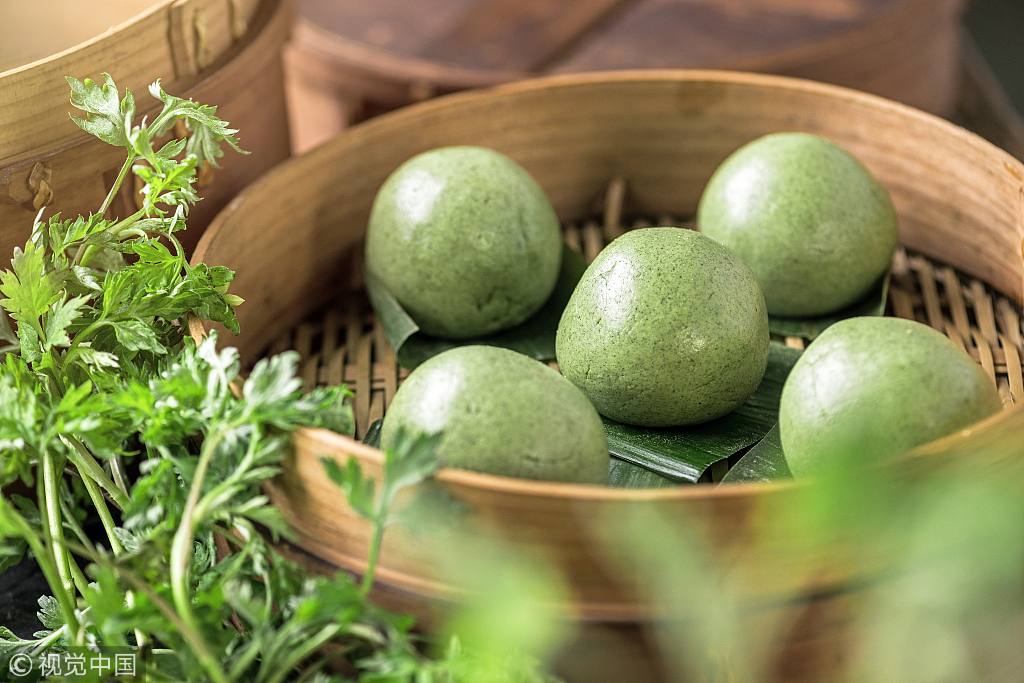
Culture China
17:02, 04-Apr-2019
Qingming: Mourning ancestors and embracing nature
Updated
17:58, 04-Apr-2019
By Yang Meng

One of China's four major festivals, this year's Qingming or Tomb-Sweeping Day falls on April 5.
As the name implies, the holiday is a period to pay respect to one's ancestors. People travel to the tombs of their family members to sweep the tombs, place offerings of food and drink as well as paper money.

Flower wreaths outside People's Cemetery in Beijing. /VCG Photo
Flower wreaths outside People's Cemetery in Beijing. /VCG Photo
As cremation has become more popular, especially in the bigger cities, some of the tomb-sweeping customs have been simplified. Flowers are often presented, instead of paper money.
Spring outing

Families enjoy spring in a park in Hangzhou, east China's Zhejiang Province. /VCG Photo
Families enjoy spring in a park in Hangzhou, east China's Zhejiang Province. /VCG Photo
Qingming is not only a solemn festival for worshiping the ancestors, but can also be a joyous time for people to enjoy the spring and get closer to nature.
As the fifth solar term of the year, the weather is much warmer and spring is in full bloom. Trees are green and flowers are blooming, so it's an apt time to be outside.
Seasonal food

Qingtuan, the delicacy of the season. /VCG Photo
Qingtuan, the delicacy of the season. /VCG Photo
Qingming follows Hanshi Festival, which lasts only one day. These two festivals have gradually been combined. “Hanshi” means cold food, and the tradition dates back to the Spring and Autumn Period (770-476 B.C.)
In ancient times, people did not cook on the day and qingtuan, a snack filled with mugwort juice and wrapped in sticky rice, has become a traditional favorite. The stuffing can vary, with options including red bean paste and dried meat floss.
In addition to China, other places that celebrate Qingming include Vietnam, South Korea, Malaysia, and Singapore.
( Top image designed by Du Chenxin.)

SITEMAP
Copyright © 2018 CGTN. Beijing ICP prepared NO.16065310-3
Copyright © 2018 CGTN. Beijing ICP prepared NO.16065310-3